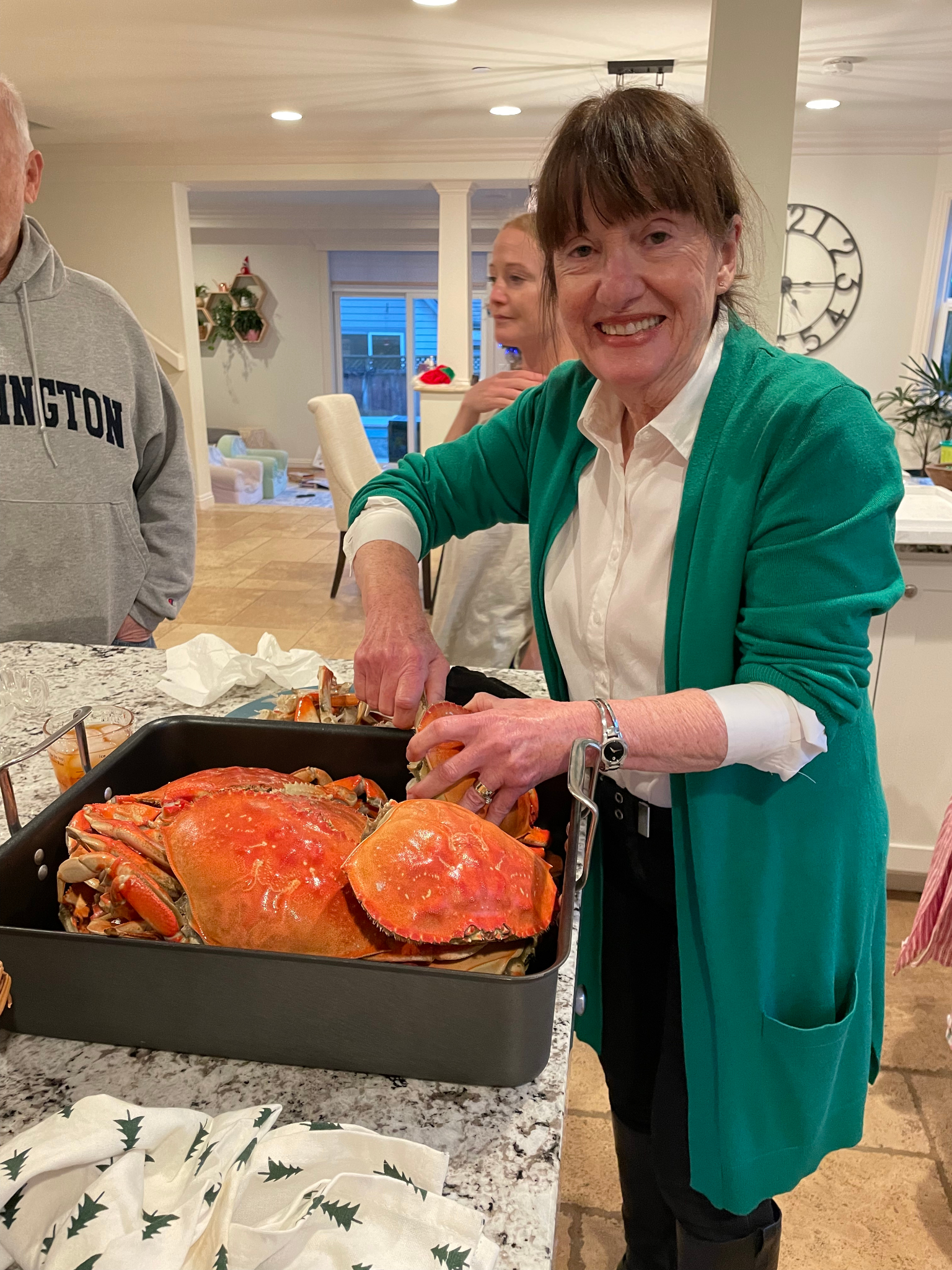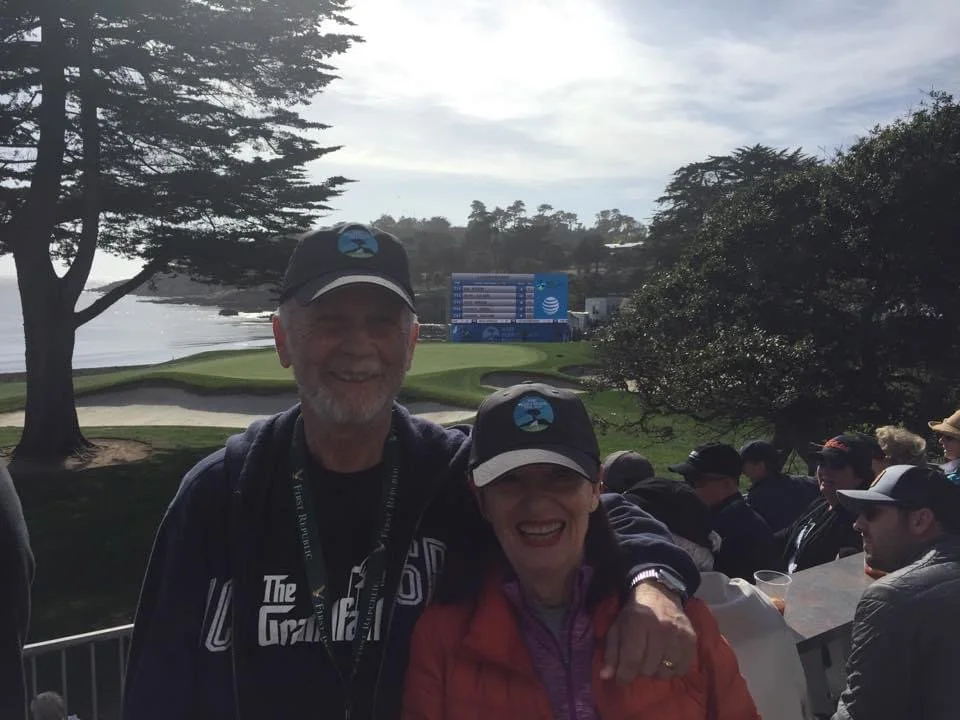Barbara Kelley Reflects on the Past, Present, and Future of Journalism
Photo Provided by Barbara Kelley
Barbara Kelley remembers her first day at SCU teaching Introduction to Journalism at 8 a.m. in the fall of 1997. She was wearing a “cute outfit” and calling roll, looking at a classroom of students who seemed hungover or falling asleep.
“I thought, ‘Oh my god, if this is what it's like, I need to walk out of here, get in my car and go home and not come back,’” she said. “But then I had the advanced upper division class a few hours later, and that was a great class. Everything was good. And I said, ‘Okay, maybe I can do this.’”
After 27 years, Kelley—senior lecturer of Journalism— is retiring from teaching. Throughout Kelley’s career, she has built the foundation of SCU’s journalism curriculum and molded many student reporters. The senior lecturer in the Communication Department describes her teaching philosophy as opening students’ minds and getting them to take risks.
“It’s about reporting. It’s about the information. It’s about getting the info to the public that they need in order to participate in their democracy,” she said.
While Kelley has taught an assortment of classes, including upper division electives like Magazine Journalism and Advanced Journalism, the introductory course has been her bread and butter.
One of the five intermediate classes that students can choose from for the COMM major, many come into with little to no prior experience in journalism. Over the years, Kelley has prioritized shaping students into citizens of the world instead of reporters. Her colleague once told her that when you teach journalism, you should assume for most of the students in the class it is their first and last journalism class.
“It means students are never going to take another journalism class, so this is your one opportunity to let them know how important it is,” Kelley said.
While she spent time teaching students foundational concepts like how to write a lede and a nutgraf – the paragraph that frames a longer story – the class also delves into the role of journalism and newspapers in democracy.
Jack Gillum ’06— currently a reporter at Wall Street Journal— took Kelley’s introductory class when he was a Computer Science major with little experience in journalism, later becoming the editor-in-chief of The Santa Clara student newspaper. He called the class a “journalism boot camp.”
“She was very tough in a way that I think is important because it’s extremely good training for the real world,” Gillum said. “If you get something wrong on a normal paper that’s one thing, but it’s another if you write a story and it’s wrong and embarrasses somebody. Your credibility goes to zero.”
Gillum’s friendship with Kelley blossomed after he graduated. Throughout the years he’s continued to seek career advice and feedback on story ideas from Kelley.
Back when Gillum was working at the Washington Post, he gave Kelley and her husband, Tom, a tour of the newsroom. Afterwards, they met up with Kelley’s friends and some former SCU journalism alums at a bar across the street called the Post Pub, an old watering hole for Post reporters.
“It was a blast,” Gillum said. “We had a couple rounds doing the typical things journalists do,which is talk about journalism.”
After the alums left, Kelley’s friend turned to her and said, “That was so great. That gives me faith in the future.”
Kelley answered, “I don’t know whether I had anything to do with that, but that makes me feel really good that you saw that in those kids.”
Kelley is known for her honesty in both her work and her feedback, along with her generosity and kindness. Gordon Young, a senior lecturer who teaches journalism and her longtime colleague, remembers the annual capstone dinners she’d host at her house when students were required to do a cumulative project. It was a chance for students to have their work critiqued in a friendly setting.
“She cooked the food, which was always great, and it was a chance to spend time with students and talk about their work and their future,” Young said “It created a personal connection that is such a key element of going to college.”
Kelley’s departure is happening at a time when journalism looks far different than it did 27 years ago when she started teaching.
There is now a journalism emphasis in the Communication Department and a separate minor. And most people consume news in a vastly different way. “Journalism hasn’t changed but the way we deliver news and information has absolutely turned upside down and changed completely in a digital format,” said journalism lecturer Lisa Davis.
Kelley is well-aware of these changes and has hopes and worries for the future.When asked what her visions are for the journalism program at SCU, she expressed mixed feelings.
“Journalism is so aligned with the Jesuit mission. It’s for the common good, it’s public service, critical thinking,” she said. “But you can’t offer classes unless you have students in the desks, so I hope the interest continues. My fear is that it won't. It worries me.”
In her classes, Kelley continuously struck a balance between incorporating the changing nature of the news landscape with staying true to the core of journalism, which relies on conversations.
“There’s no way to really do journalism without talking to strangers,” she said. “I think in the beginning students have always felt that it’s a little awkward at first, but now that students are just used to communicating and living inside their phones they are not as comfortable talking.”
For Kelley, the students have been the essence of her job for over two decades, the same job that she thought she would have for one quarter.
“It’s really been an honor to be here, mainly because of the students that I’ve interacted with, " she said “What a treat.”
Photo Provided by Barbara Kelley

